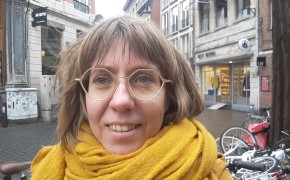Knowing what kind of circular consumption models are favoured by the majority of the citizens, and paving the way to mainstream circular consumption
The city organised this urban living lab in a neighbourhood with people from various socio-economic and cultural backgrounds, including a social housing district. The aim was to make the project results representative for the diverse population of the city. The city mapped people ’s wishes and concerns about different livelihood needs: energy and water consumption, food, housing, consumer goods such as tools, transport modes and textile. We mainly explored the degree to which inhabitants adopt circular thinking without per se naming it that way. We used a range of methodologies in order to engage many different people; from an online survey and diary studies to ideation workshops adapted to specific target groups (youth, migrant women, …). To reach the everyday men and women, we immersed into the social fabric by home visits, and through neigborhood workers and associations. Together, we organised neighborhood activities such as a flea market or a disco soup. In a second phase of the project, the city aimed to boost small scale circular initiatives which formulate an answer to the most common concerns that had been mapped. Together with social organisations, citizens and entrepreneurs, we organised a circular market (physically and on a map), provided a shared e-cargobike system and started a pilot to mainstream the use of a tool library. The city also supported the citizens in the development of a communal vegetable garden
Resources needed
Of a total budget of €140.500, €100.000 has been funded by Circular Flanders. This covered a 0,5 FTE for project coordination, €15.000 for the service design partner Studio Dott,assisting in the neighbourhood action research, and €30.000 as seed capital for the circular solutions to everyday needs.
Evidence of success
Inhabitants from various age categories, cultural and socio-economic backgrounds, express their interest in sharing and circular economy: some ten neigbors started communal gardening and composting, the circular market concept has been visited by 200 people and 27 households wanted to share an e-cargobike. Stroom almost doubled the number of subscribers to the library of tools in Mechelen, by communicating on the advantages and grating free memberships for one year.
Difficulties encountered
Organising a real participatory trajectory is time consuming. It takes at least a year to build rapport with people, so it is only after two years that real results can be achieved. The city needs a plan to integrate the circular consumption activation within social or neighborhood work
Potential for learning or transfer
Building on Stroom, the city engaged in the CECI-project to develop an action plan on circular economy citizen involvement. We learned that the majority of the citizens wants products to be repairable, and circular consumption modes are fashionable if easy to reach, affordable or contributing to social goals. A right framing of circular consumption is is crucial to mainstream circular consumption. Not everybody is interested in fighting climate change, but citizens do want to use products as a service when expensive and only used for a limited time, such as children’s toys or garden tools. Citizens in Mechelen are hesitant to use clothing libraries, because clothing is seen as something personal.
Many circular initiatives, both from private operators and citizen-led, are not yet known among the broader public. Local governments may play a crucial role in supporting these in communication, partnerships, granting them a testing space and guiding them towards a viable business model
Please login to see the expert opinion of this good practice.
Tags: Circular economy, Citizens, Engagement, Awareness, Pilot action, Vulnerable groups








